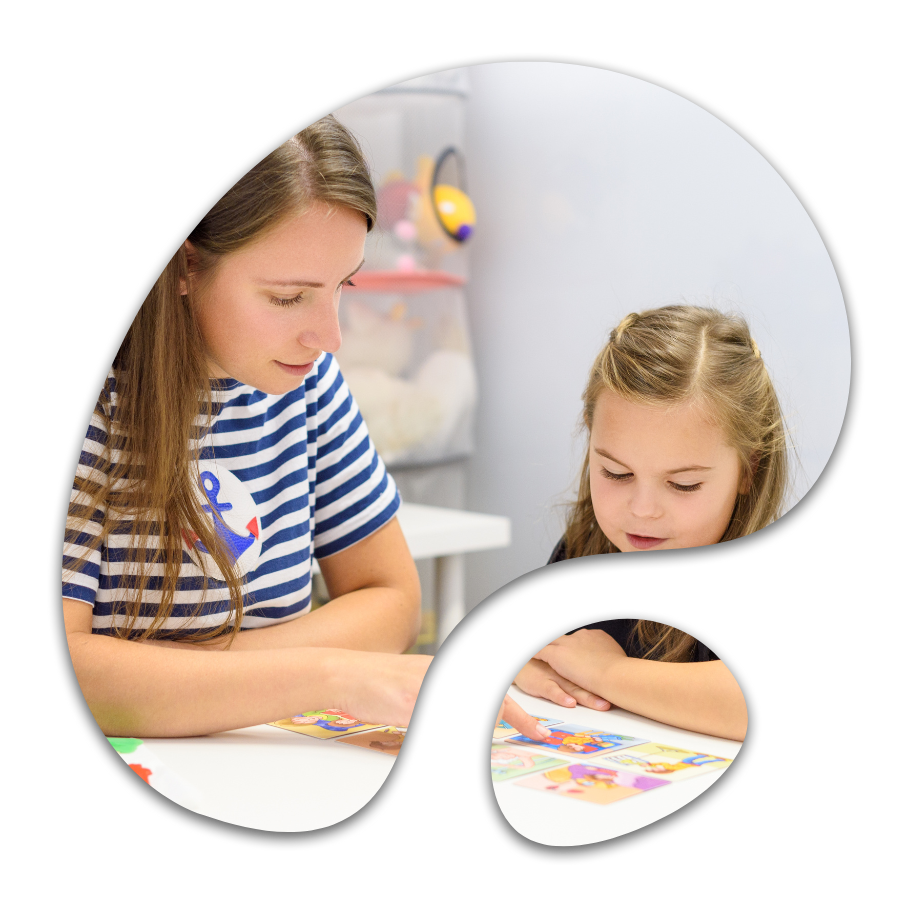

Speech and Language Delays
Speech and Language Delays
Understanding Speech and Language Delays in children?
- A speech delay refers to difficulty with the actual production of sounds and words (e.g., problems with articulation, clarity, or fluency).
- A language delay involves challenges understanding others (receptive language) or expressing thoughts and ideas (expressive language).


Children with speech and/or language delays may:
✅ Speak fewer words than expected for their age
✅ Have trouble following directions
✅ Show frustration when trying to communicate
✅ Struggle to form sentences
✅ Be difficult to understand
From Concern to Confidence: Speech Support at Home

What Research Says
- Early intervention is key: Studies show that early identification and intervention for speech and language delays significantly improve long-term outcomes. Research by the American Speech-Language-Hearing Association (ASHA) emphasizes that the earlier a child begins therapy, the better their chances of catching up to their peers in communication skills.
- Language-rich environments: According to a study published in the Journal of Child Language, children exposed to rich verbal interaction (like talking, reading, and playing together) show stronger language development and improved vocabulary by age 3.
- Parental involvement boosts progress: Research from The National Institute on Deafness and Other Communication Disorders (NIDCD) shows that active participation from parents in therapy and home practice can accelerate speech and language milestones.
Speech Delay Help Desk: Your Questions, Our Answers
- A speech delayaffects how a child produces sounds and words (articulation, pronunciation). A language delay affects how a child understands or uses words to communicate ideas (vocabulary, grammar, comprehension).
If your child is not meeting common milestones — like saying first words by 12–15 months or combining two words by 2 years — or struggles to understand directions, it’s a good idea to seek an evaluation by a speech-language pathologist.
Some children may catch up naturally, but many benefit from professional support. Early therapy ensures your child doesn’t fall further behind, especially during critical learning periods.
Causes vary and may include hearing loss, developmental disorders, oral-motor problems, or environmental factors (like reduced exposure to rich language). Sometimes, no specific cause is identified.
If you have concerns about your child's communication, it’s best to act early. Research shows that early intervention leads to much better outcomes than a “wait and see” approach.
Therapy frequency depends on your child's specific needs. Many children benefit from 3-4 sessions per week, combined with home practice activities guided by your therapist.
Talking, reading, playing, and involving your child in everyday conversations are powerful ways to boost language skills. Limit passive screen time and turn daily moments into learning opportunities.
Some mild speech or language delays may resolve with maturity, but many require targeted intervention. Without support, delays can affect academic skills, social development, and self-confidence later on.
